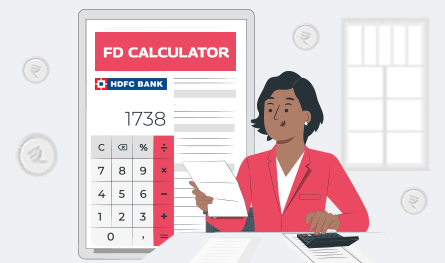Related Articles
 Jan 08, 2025
Jan 08, 2025
Is Varicose Vein surgery covered under the health insurance policy in India
 Health Insurance
Health Insurance
The full form of HSA is a Health Savings Account which is a type of savings account. You can keep pre-tax funds in this savings account for any kind of medical expenses. As you have a Health Savings Account, you will be able to pay for your required medical expenses, while not affecting your taxable income. Since it is quite a new concept in India, we can discuss this at a bit of length to understand what it basically is and several other things about HSA.
Health Savings Account is managed by the Government of India body and is a voluntary payment account. The concept involves both health as well as investment, and one can use it at the time of medical expenses. The funds invested in an HSA ensure you of getting the required monetary help for medical expenses in the future. While most of us are unaware of our future and may any time end up in the hospital, and it may make a big hole in our pockets, this kind of savings account can be of big help. However, you need to know that the payments you make with an HSA account should be done only for expenses related to healthcare.
A HSA can be opened by any individual in the country. However, an individual has to put money in this account before paying taxes on their income. HSA uses include covering the medical cost. The amount they contribute is then deducted from the taxable income, which enables you to pay fewer taxes on the income. Anybody opening an individual HSA must know that they cannot use the funds for any non-medical expenses.
HSA come with a lot of benefits, and here some of them are mentioned below:
One can open an HSA with a bank or a credit union. However, you need to have your savings account with the bank or the credit union. As you plan to open a HSA, you need to meet the health savings account requirements as stated below:
One has to be either a citizen of the country or a permanent resident of India
The minimum age of the individual has to be 21 years, while the maximum can be 55 years.
To open a Health Savings Account, you can either choose an online or physical mode. The documents that you need to provide are:
These are three different concepts and quite different from each other. Let us discuss them further to understand each of them.
| HSA | HRA | FSA |
| The full form of HSA is Health Savings Account | The full form of HRA is Health Reimbursement Account | The full form of FSA is a Flexible Spending Account |
| You can contribute the money to a savings account on a pre-tax basis | A monthly fund is provided by the employers to their employees for tax-free money that is designated for medical expenses | Employers own the FSA accounts and are quite similar to HRA |
| HSAs can either be opened by an individual or an employer can offer it | Only an employer can open it | Only an employer can open it |
| The amount that is not used gets rolled over to the next year | The unused amount gets lapsed | The unused amount gets lapsed |
Health Savings Account or HSA can be a great help for those who want to safeguard their own and their family’s health while maintaining financial stability. It is also a popular choice for employers to offer it as a benefit to their employees.
HSA is generally considered better than HRA since the unused amount in HSA gets rolled over to the next year which is lapsed in HRA.
Yes, HSA can be opened at any banking institution where you have a saving account. You can also ask for recommendations from your insurer or employer.
Investment in HSA does make sense since it protects from financial hardships resulting from a medical exigency.
Any citizen of India above the age of 21 years is eligible to open an HSA. The maximum age for opening an HSA is capped at 55 years.


Paybima Team
Paybima is an Indian insurance aggregator on a mission to make insurance simple for people. Paybima is the Digital arm of the already established and trusted Mahindra Insurance Brokers Ltd., a reputed name in the insurance broking industry with 17 years of experience. Paybima promises you the easy-to-access online platform to buy insurance policies, and also extend their unrelented assistance with all your policy related queries and services.
So, you’ve crossed the fabulous 60 mark. Retirement may be on the cards, your kids might be off doing their own thing, and suddenly your knees are making more noise than your WhatsApp notifications. Welcome to the senior citizen club.
Now let’s talk about something most of us tend to postpone until a doctor gives us a reality check: health insurance. If you are wondering whether buying health insurance after 60 makes sense, the answer is a loud and clear yes. This article will cover everything you need to know about it, how it makes sense, how it differs from health insurance for young adults, and what you need to look out for when checking for medical insurance above the age of 60.

.png)
April 2 is observed as World Autism Awareness Day and there is no better way to observe the day than to raise awareness of this condition and to promote kindness towards autistic people. Read on to know more.


Car depreciation implies the difference between the cost of a car at the time of buying the car and when you sell it. A car insurance claim amount is determined by the car depreciation rate. The car depreciation rate is the reduction in the value of your car over its lifespan caused by wear and tear.


Fixed Deposits (FDs) are one of the safest ways to grow your savings. HDFC Bank offers attractive FD interest rates, allowing you to earn guaranteed returns on your investment. But before you invest, it's important to know how much interest you will earn and what your final maturity amount will be.


If you think of life insurance, chances are you are picturing something people buy in their 30s or 40s. But what if you are 65 or older and just getting started? The good news is that you are never too late. Whether you are thinking of easing the financial burden on your family, covering final expenses, or simply leaving behind a legacy, there are life insurance options tailored just for you.
This article will be a guide to life insurance for senior citizens above 65 years, explaining why it is important, the type of insurance options, and how to get the right policy for you.
